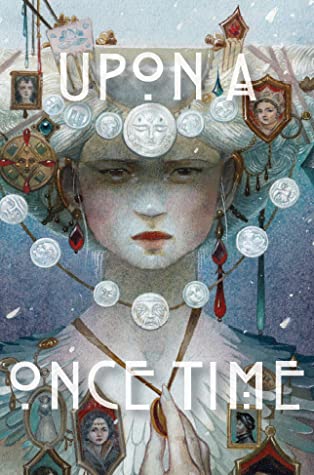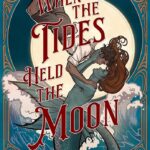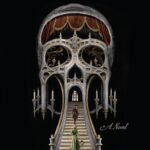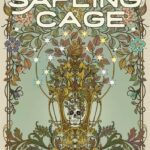
Goodreads

Fairy tales and folk tales, originally passed down orally through generations, are a fundamental part of our shared world culture. They are a way to interpret - through magic and monsters, princesses and paupers, queens and quests - lessons on morality and society. They show a once upon a time world of simple archetypes in fantastical situations.
This book gathers twenty-one authors who have brought new focus to fairy tales by combining two well known stories with a literary genre of their choice.
Upon a Once Time contains the following tales re-imagined: The Arthurian Cycle, The Bad Wife, Beauty and the Beast, The Boy Who Drew Cats, The Brown Bear of Norway, Caliph Stork, Cinderella, Diamonds and Toads, The Girl Who Trod on a Loaf, The Goblin Spider, The Golem of Prague, Iron John, The Little Mermaid, Little Red Riding Hood, Math Fab Mathonwy, Momotaro, The Nightingale, Petrosinella, The Pied Piper of Hamelin, Pwyll Pendefig Dyfed, The Red Shoes, Rumpelstiltskin, Rusalka Tales, Schneewittchen, The Selkie Bride, Sleeping Beauty, The Swineherd, Taketori Monogatari, Thousandfurs, Tom Thumb, The Twelve Months, The Valiant Little Tailor, Vasilisa the Beautiful, Vasilisa the Wise, The Waters of Life, The Well of the World’s End, The Wild Swans, and The Woodcutter’s Daughter.
Anthologies are always risky propositions, in my experience, but I rolled the dice on this one almost solely on the basis of that stunning cover. It didn’t hurt that I loved – still love – the concept of crossbreeding fairytales! So I was pretty hopeful when I opened it up.
And I’m not sorry I did, because there are some real gems here. But overall, I would rate this book as…meh.
The Greats
Six Rusalki by Na Sulway – this was a mash-up of the Pied Piper of Hamlin and the myth of the rusalka, which is a usually-female water-spirit from Slavic folklore. This was probably my favourite story in the entire collection, with really stunning prose and a brilliant premise. It even exceeded the brief by working in a bunch of other stories as well; Excalibur shows up, as do wishing wells and what’s clearly meant as an inspiration for the Frog Prince story. It’s about women’s rage and the worldbuilding for rusalka culture is just exquisite. I’m definitely going to be looking up more of Sulway’s work!
The Waters at the End of the Worlds by Mike Morgan – a mash-up of the Well of the World’s End and the Waters of Life, but sci-fi. The youngest of seven alien princes has to try to find the water that will make his emperor-father immortal, and it was really clever and sneaky. I loved the twist ending, which felt very in line with how dark and gory the older versions of fairytales tend to be.
Strings That Ought to be Pondered, Even in Urgent Times by M. Regan – Goblin Spider + Petrosinella (aka, Rapunzel) and possibly the only story that picked Horror as its genre. I loved this one, it’s nice to see monster princesses, even if I felt very sorry for the poor prince!
Taketori Momogatari by Evan Dicken – okay, actually, THIS might be the best story in the whole collection; all the characters are apps and other digital creations, they live in a server-kingdom, and the monsters are worms and viruses and things. And in this setting, a woman sends three suitors off to complete quests, and ends up completing them herself. Really clever, really fun, and I would love a novel set in this universe!
Sunshine Noir for Synthetic Lovers by Lin Darrow – this was a solarpunk story with really brilliant worldbuilding, where gender is determined by whether you’re more Synthetic or more Organic (people being made up of both at this point). I do think it failed the brief, really, in that it barely touched on the Donkeyskin story it was supposed to use as part of the mash-up, but I loved it so much I don’t really care.
Mutability by Maya Chhabra – really wonderful premise of mixing the Welsh legend of Blodeuwedd with the Caliph Stork, and I think Chhabra pulled it off really well. There were one or two weaker spots, but overall I’d love to see this premise given a full novel to play in. I do think it would probably be less delightful to a reader who didn’t know about Blodeuwedd previously, but I loved it.
Where the Earth Meets the Sea and the Sea Meets the Sky by Brent Baldwin – this was the perfect story to end the book on, and it’s basically a perfect story, featuring a selkie woman who falls in love with the man who bakes her scones. It’s sweet, and clever, and wonderfully subverts the usual selkie wife stories, as well as giving a very lovely ending to another old story you’re likely to already know very well.
The Okays
Little Tom’s Reality by Rebecca E. Treasure – I didn’t find this one super interesting; Tom Thumb is a boy who’s never been outside because his family live on a planet that’s still undergoing terra-forming. It wasn’t bad, it just wasn’t amazing.
Diamonds, Toads, and…Pumpkins? by Melissa Mead – this one really disappointed me, because I love the Diamonds and Toads story and intensely disliked how lame this short story was, but it’s not actually bad. It’s just…the tone is weirdly casual, and even with the little bit of meta it wasn’t very interesting. It was meant to be Humor + Fantasy, but it really didn’t pull off being any kind of funny.
The Rabbi’s Daughter and the Golem by Alex Langer – amazing premise (beauty and the beast, but golems) that the story itself just didn’t live up to. I think this would have done better as a novella; it felt rushed and squashed, like Langer didn’t have enough space to do it justice.
Abigail Washington and the Angelic Organ of Far Khitan by Joshua Gage – this was one of the few stories where I wasn’t familiar with the works that were being mashed up (I know The Nightingale, but I’ve never heard of Iron John), and maybe it would have made sense if I did? But as it was…it really didn’t make sense. The actual writing was quite pretty, but it felt like a moralising fable and the ending was just strange.
Lady of the Slake by Suri Parmar – this could have been amazing, but it couldn’t quite live up to its premise of the Lady of the Lake falling in love with a spoiled princess. But it did have a marvelous first line: “I knew at first sight that she would stop at nothing for her happy ending.”
Two of Our Kind by Ann Martino – this one had an interesting format, being told in the form of a biography including letters between the characters; the king of one country, and Cinderella post-ball. My biggest issue was that, not knowing the story of the Valiant Little Tailor, I didn’t get how the king and Cinderella had all these shared experiences, so the story didn’t stand on its own too well.
The Pilot by CJ Dotson – the only reason this isn’t among the Greats is because the beginning was so clunky and forced. Once the story shifted to being told via journal entries and ‘vox box’ recordings, it really shone – a brilliant inventor helps her brother woo a woman, but ends up falling for her herself.
A Dark Path Through the Forest of Stars by Jude Reid – a pretty clever mash-up of Little Red Riding Hood with Sleeping Beauty, it was just shy of getting listed with the Greats. Here, Red is working on a ship that takes the rich and fabulous to newly terraformed worlds, but has to deal with an unexpected wolf. The ending delighted me.
The Awfuls
Red Boots Blues by Cat Rambo – the writing was pretty, but I had no clue whatsoever wtf was going on. I don’t know the story of The Girl Who Trod on a Loaf, which is half of the mash-up for this one, but still, I don’t think I should need to for your story to make sense. The ending came out of nowhere. Honestly, this one actively annoyed me.
Currants to the Sea by Taryn Haas – this started out really beautifully, but dissolved into absolute nonsense, and not even a F/F ending could save it for me. Housewife leaves her terrible husband and gets adopted by the Sea King??? Or maybe is his long-lost daughter??? It’s not at all clear, and it’s even less clear how she can help the adventurer with her impossible tasks. Really disappointing, because it started so well.
Cloak of Bearskin by Anna Madden – nothing made sense, nothing was explained, things happened at total random, I have no idea how this was accepted for publication.
The Candlewood Trail by Dennis Mombauer – this one was even worse. Again, I had absolutely no idea wtf was going on, except that maybe they were in space? And the ending was…I have no idea what that was. Somehow the mc got the better of the Corporation that owned her even though…they screwed her over??? I have no idea. This was incredibly frustrating to read, and the stupid priest’s Gnomic utterances didn’t help.
Gell Who Makes by Kit Falbo – I don’t like being actively mean, but my 14yo sister writes much, much better than this. And granted, she’s gifted, but my point of how the hell did this get published still stands. Swapping between tenses, not knowing when to break a paragraph, clunky writing, basic punctuation rules completely broken (and not for deliberate effect) – urgh. This was probably the worst story in the whole book.
The Forest Magic Protests Its Own by Jamie Lackey – okay, probably no one else would call this Awful, because on its own, this is a really beautiful little story about a carpenter’s daughter and a faun who fall in love and end up together despite everything. BUT. If you have read The Faun and the Woodcutter’s Daughter, which is one of many stories written by Barbara Leonie Picard and published in the 1960s rather than, say, something like Snow White which is centuries old and we’ll never know who made it up – if you’ve read the original, then you’ll know that Lackey sticks to it practically word for word, with just a little extra detail about the young woman’s human suitor. So this enraged me because it’s not a mash-up, it’s almost a perfect copy of Picard’s story.
*
And after all of that? I would like to mention that Upon a Once Time is a stupid title that makes no sense at all. Twice Upon a Time was right there. Right there!
In conclusion, there were some gems, plenty of okay stories, and some really bad duds (but I guess, on the whole, not many). I wouldn’t say it lives up to its cover, and the ebook formatting was so bad I hope the paperback is better, but it’s not a total trainwreck. I think quite a few people would enjoy it, if you’re a fan of retold fairytales.
Just don’t give Jamie Lackey any credit for The Forest Magic Protests Its Own, because the story wasn’t nearly different enough from the original to be considered Lackey’s own creation.



Leave a Reply